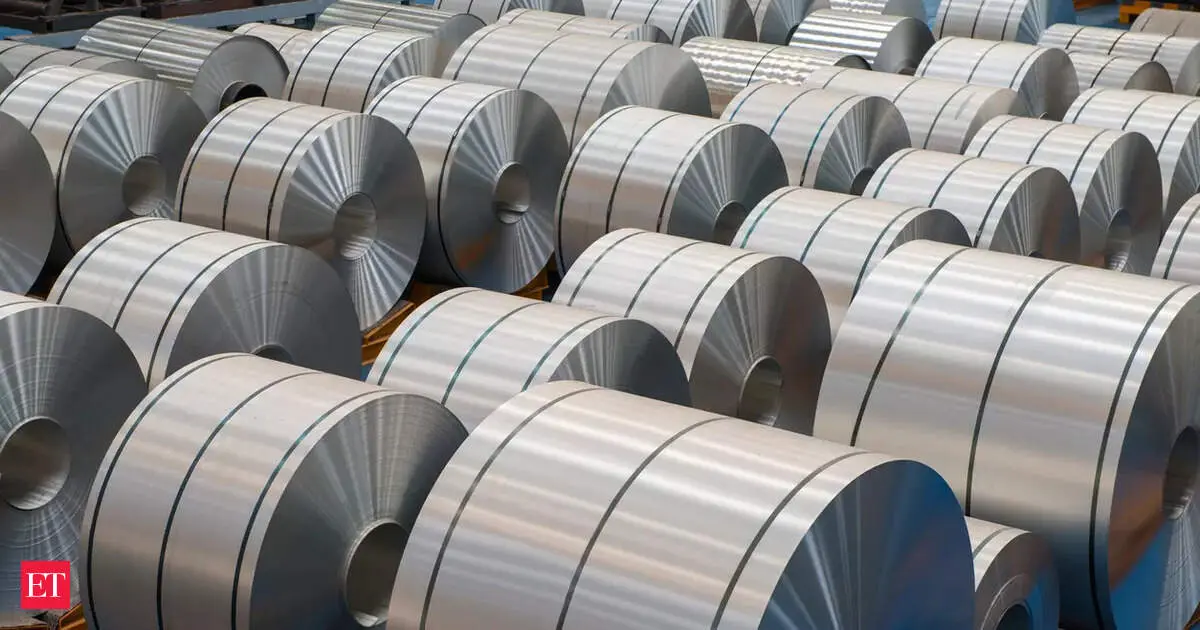New Delhi: Indian steel producers are urging the government to significantly increase import quotas for low-ash metallurgical coke, aiming for a near sevenfold rise to 9.3 million metric tons. This request comes in light of a growing supply crunch and after recent import curbs were extended for six months. Major steelmakers, including JSW Steel, have raised concerns over restrictions impacting their production and expansion efforts.
Steel Producers Seek Increased Import Quotas
The recent requests made by Indian steel producers highlight a growing concern regarding the availability of low-ash metallurgical coke, a crucial raw material for steelmaking. Industry sources indicate that steelmakers are petitioning the government to raise import quotas significantly—from the current cap of 1.4 million metric tons to a staggering 9.3 million metric tons. The proposal includes sourcing increased shipments primarily from Indonesia, followed by Japan and Poland. This request was captured in a government document reviewed by Reuters, showcasing the urgency of the situation as the industry grapples with supply constraints.
Current Import Quotas Insufficient for Rising Demand
India, recognized as the world’s second-largest crude steel producer, has implemented import curbs on low-ash metallurgical coke for six months starting from July 1, following a previous extension. Despite these restrictions, major steel producers argue that the current allocation of only 66,364 metric tons from Indonesia fails to meet the growing demand driven by rapid capacity expansions across the sector. One steel company executive, wishing to remain anonymous due to the confidential nature of the discussions, articulated how these abrupt policy decisions heavily impact major players in the industry. They stressed that domestic production of met coke simply cannot keep pace with demand, thereby necessitating a re-evaluation of import quotas.
The Challenges Faced by Major Steel Producers
Steel giants such as JSW Steel and ArcelorMittal Nippon Steel India have voiced their frustrations regarding the existing import restrictions. JSW, which holds the title of India’s largest steelmaker by capacity, recently engaged with federal trade ministry officials to advocate for a higher allocation of metallurgical coke imports. The difficulties in sourcing preferred grades locally have impeded the expansion efforts of these companies, adding another layer of challenge to the already-strained industry. As demand escalates, these firms find themselves caught between local supply limitations and the need for high-quality inputs essential for steel production.
Government Stance and Future Outlook
Despite mounting pressures from the steel industry, the federal Ministry of Steel has backed the curbs, asserting that local supplies of met coke should suffice. Earlier this year, Trade Minister Piyush Goyal encouraged steelmakers to focus on domestic sourcing rather than relying heavily on imports. However, industry experts argue that the existing local supply chain cannot satisfy the increasing demand, suggesting that a sustained approach to both domestic production and imports will be vital for stabilizing the steel sector and supporting the overall Indian economy.
As the situation unfolds, it remains to be seen whether the government will heed the industry’s calls for a review of import policies. The growing demand for steel, both domestically and internationally, underlines the importance of ensuring a stable supply of metallurgical coke. A balanced approach that incorporates both local production and timely imports could be instrumental in propelling the Indian steel sector forward, helping to cement its status as a key player in the global market.
Bankerpedia’s Insight💡
The call from Indian steel producers for a significant increase in low-ash metallurgical coke import quotas underscores a critical supply gap that directly impacts the nation’s expanding steel industry. With major players like JSW Steel facing operational hurdles, this situation could stifle growth and innovation in a sector vital to India’s economy. If the government addresses these concerns, it can enhance production capacity, stabilize prices, and ultimately support job creation. Readers should closely monitor developments in this area, as shifts in policy could influence investments and market dynamics.
What Does This Mean for Me?🤔
- Salaried Person → Potential price increase for steel-related goods and services.
- Business Owner → Increased import restrictions may hinder production growth.
- Student → Possible steel price increases affecting student budgets and materials.
- Self-employed → Increased costs and sourcing challenges for steel-related projects.
- Homemaker → Potential steel price increases affect homemaker’s budgeting.
- Retiree / Senior Citizen → Potential increase in steel prices affecting healthcare and essentials.
- Job Seeker → Job market may tighten due to limited steel production.
- Farmer / Rural Citizen → Higher steel costs may reduce farmer profitability and investments.
Research References📚
- economictimes.indiatimes.com
- RBI
- SEBI
- Ministry of Finance
- NABARD
- Department of Financial Services (DFS)
📲 Stay ahead in banking & finance!
Join the Bankerpedia WhatsApp Channel for instant updates, and
subscribe to our YouTube Channel for in-depth analysis and expert explainers.









